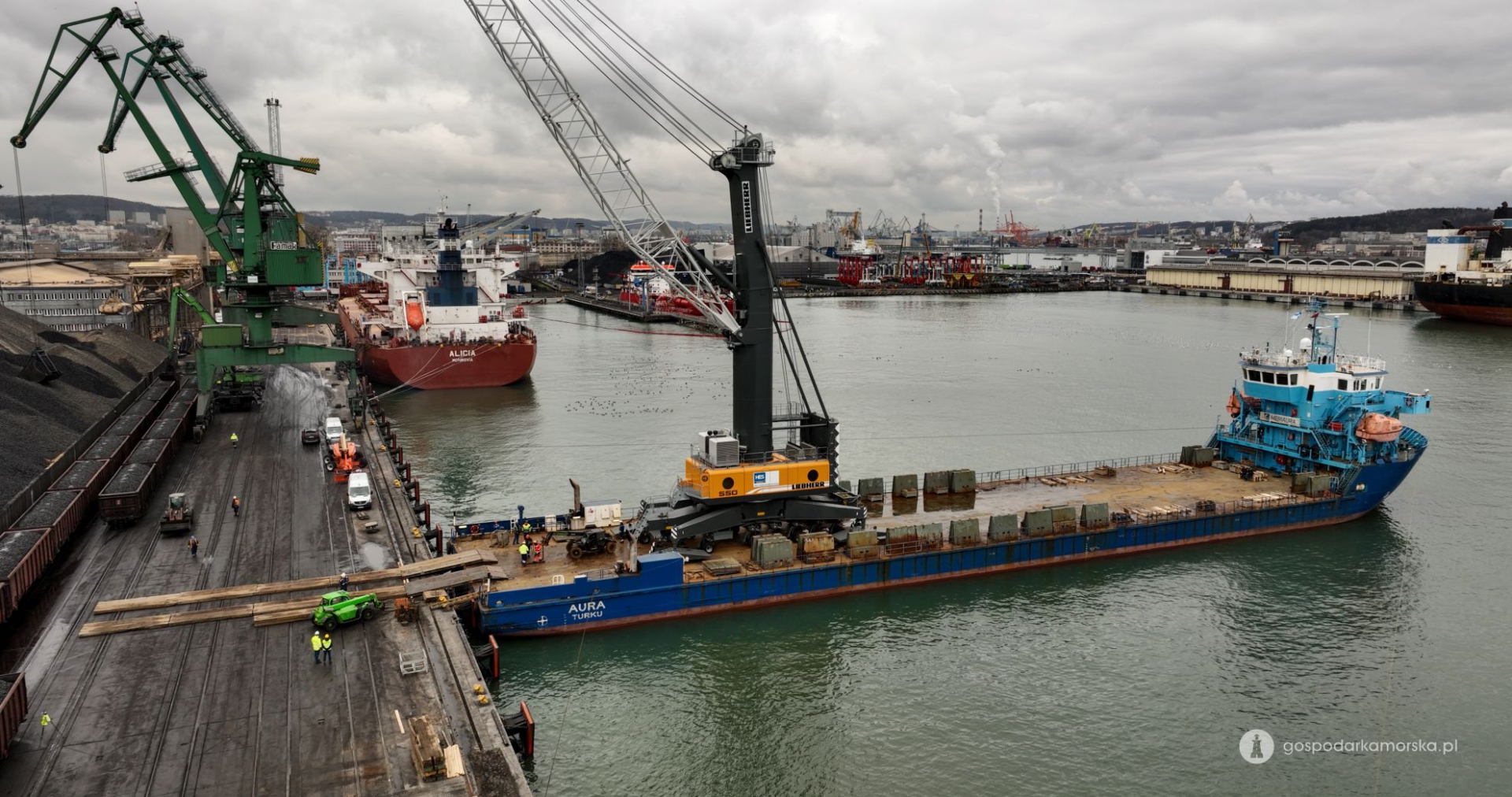![New mobile crane in HES Gdynia terminal [VIDEO] - MarinePoland.com New mobile crane in HES Gdynia terminal [VIDEO] - MarinePoland.com](https://www.marinepoland.com/zdjecia/artykul/1784/6676/1200x0/2/60.jpg)
On February 19, the HES Gdynia Bulk Terminal
was visited by a specialist vessel Aura - a Heavy Lift Vessel. The
new Liebherr LHM 550 mobile crane rolled off the ship's deck on its
own.
HES Gdynia is actively developing through ongoing
investments, and this crane is already the third mobile device of
this type in the terminal. The new, multi-purpose device will
significantly speed up the time of cargo handling, both on the side
and on land. Along with it, a universal gripper and a second
ram-spreader with containers intended ultimately for handling cereals
were purchased, which were designed in an innovative technology to
speed up the handling of the ship at the quay and reduce the
environmental impact.
The Liebherr LHM 500 has a maximum load
capacity of 124 tons, which is up to 75 tons in grapple operation and
allows for reloading rates of approx. 1,000 tons per hour. The crane
has an outreach of 48 meters, which allows free access to any part of
the holds of Capesize and Panamax ships, and the crane's supports can
be set at 13.5 meters. Importantly, the device meets the latest
emission standards and can be fully powered from the grid.
The purchase of a new crane is part of the long-term and extensive activities of the HES Gdynia terminal aimed at improving work safety, increasing reloading rates and caring for environmental protection.
HES Gdynia Bulk Terminal is a
universal terminal in the port of Gdynia, providing transhipment and
storage services for bulk cargo in port and sea traffic.

HES Gdynia belongs to the HES International group, one of the largest independent terminal operators in Europe in the field of bulk products and at the same time it is one of the largest bulk cargo terminals in seaports in Poland.
The terminal handles grain, fodder, coal, coke, minerals, aggregates, as well as liquid cargo, including chemicals and petrochemical products. HES Gdynia is one of the most innovative and dynamically developing transshipment terminals in Poland. For many years, it has been implementing investments that not only increased the capacity of the terminal, but also reduced its impact on the surroundings and the environment. The terminal has ISO 9001:2015, ISO 45001:2018, AEO, GMP+ and HACCP certificates.


